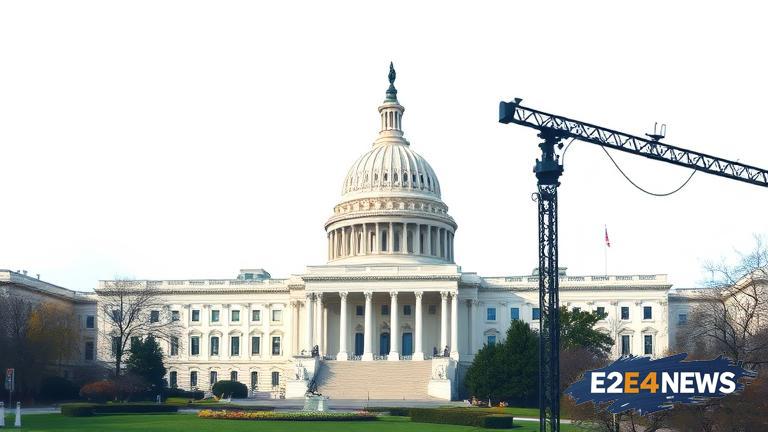This week, Washington is poised to take a closer look at public broadcasting and cryptocurrency regulations, with potential implications for the future of both industries. The move is part of a broader effort by the US government to increase oversight and regulation of emerging technologies and media platforms. Public broadcasting, which has long been a staple of American media, is facing scrutiny over its funding and content. Lawmakers are set to debate the merits of continued federal funding for public broadcasting, with some arguing that it is no longer necessary in the age of digital media. Meanwhile, the cryptocurrency industry is bracing for potential regulatory changes, as lawmakers seek to clarify the rules surrounding the buying, selling, and trading of digital assets. The regulatory environment for cryptocurrency has been unclear in the US, with different agencies and lawmakers offering conflicting guidance. This lack of clarity has created uncertainty for investors and businesses, and has hindered the growth of the industry. The US government is not alone in its efforts to regulate cryptocurrency, as governments around the world are grappling with how to balance the need for oversight with the need to foster innovation. Despite the challenges, many experts believe that regulation is necessary to prevent fraud and protect consumers. The public broadcasting sector is also facing challenges, as it seeks to adapt to a rapidly changing media landscape. With the rise of streaming services and online content, many are questioning the relevance of traditional public broadcasting. However, proponents of public broadcasting argue that it continues to play a vital role in providing high-quality, informative content to the public. They also argue that it is an important platform for diverse voices and perspectives, and that it helps to promote civic engagement and education. As the debate over public broadcasting and cryptocurrency regulation heats up, industry stakeholders are watching closely to see how the situation will unfold. The outcome is likely to have significant implications for the future of both industries, and could shape the course of media and technology policy in the US for years to come. The regulatory environment is complex and multifaceted, and it will likely take time and effort to develop a clear and effective framework for regulating public broadcasting and cryptocurrency. Nevertheless, many experts believe that regulation is a necessary step towards ensuring the long-term health and stability of both industries. By providing clarity and guidance, regulation can help to promote innovation and growth, while also protecting consumers and preventing fraud. As the US government moves forward with its regulatory efforts, it will be important to balance the need for oversight with the need to foster innovation and creativity. By doing so, it can help to create a regulatory environment that supports the growth and development of public broadcasting and cryptocurrency, while also protecting the public interest.
